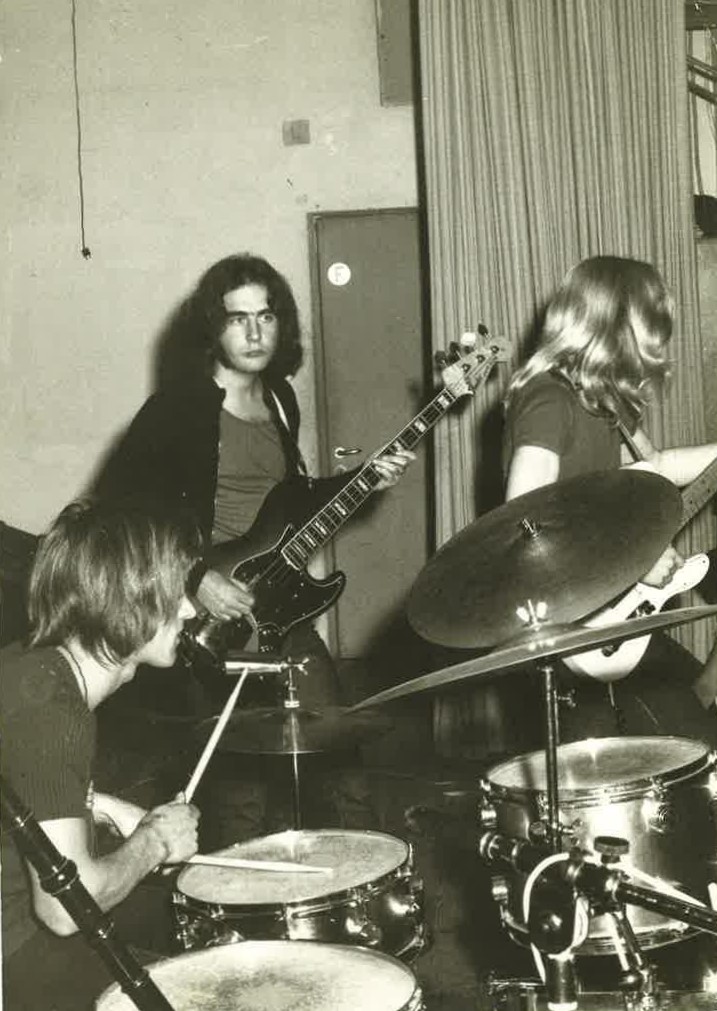Omelet Surprise | Interview | Pioneers of the Swiss Underground Music Scene
Omelet Surprise endeavored to disrupt the late 1960s and 1970s Swiss underground music milieu with their distinctive sonic expression.
Hailing from the Zurich area, Walter Keller-Walter and Heinrich Zwahlen delved into rock and roll at a tender age, drawing inspiration from Roy Orbison to British radio hits. Their band, Omelet Surprise, emerged organically, amalgamating blues-inspired compositions with progressive rock elements. The self-funded single, released under the label “Sune,” exemplified their DIY ethos and grassroots approach to music production. Following their Omelet Surprise era, members pursued diverse musical paths, with Hans Peter delving into salsa, Max taking a hiatus from music, and Heinrich exploring punk and electronic genres. Walter continued his musical voyage, releasing albums under his legal name and exploring various artistic endeavors. Under the alias “Chil,” he released ‘Rhubarby Feeling’ as a nineteen-year-old teenager. Reflecting on their tenure with Omelet Surprise, both Walter and Heinrich cherish the camaraderie and experimentation that defined their musical odyssey. Presently, Walter immerses himself in painting and anthroposophical studies, while Heinrich juggles teaching electronic music production with his Basscut projects. In parting, Walter advocates against complacency, urging a spirit of musical innovation and creative exploration.
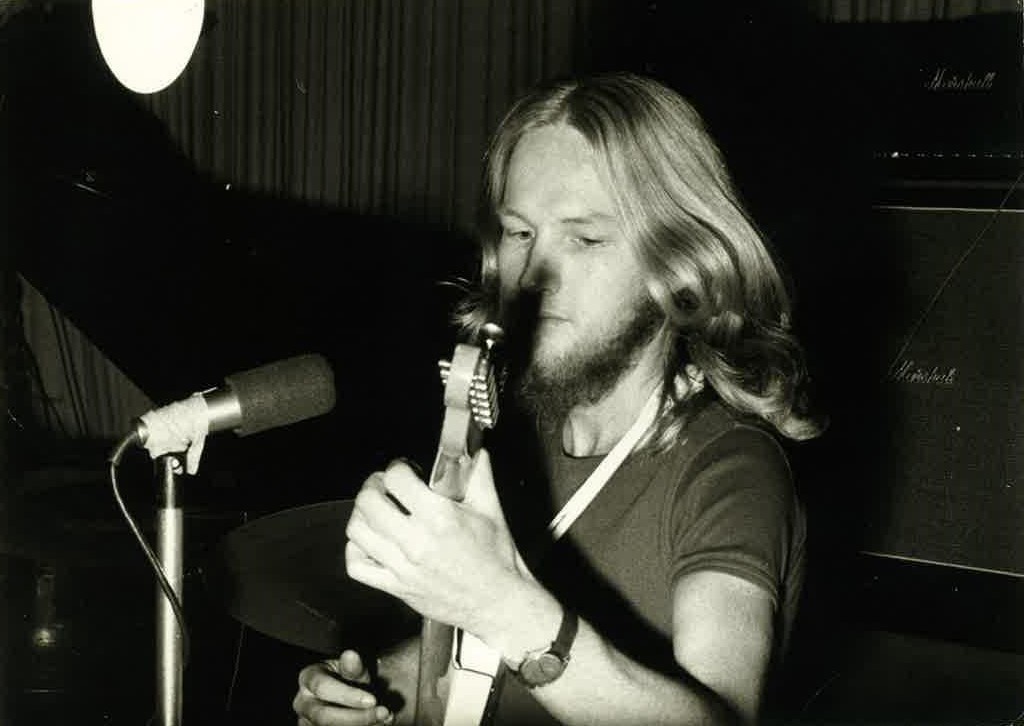
“We wanted to change the world!”
Where are you coming from, from which part of Switzerland? What was life like there after the Second World War?
Walter Keller-Walter (Chil): We all lived around Zürich. Life in Switzerland was quite calm and philistine then. You had to behave yourself and make a bourgeois career – until pop and rock music arrived in the Sixties.
Heinrich Zwahlen: Near Zurich, I grew up in the 60s, so WW2 was not a topic for me, probably also because Switzerland stayed out of this war.
How did you get interested in rock and roll? Do you remember the first singles you got?
Walter Keller-Walter (Chil): I was twelve when I heard Roy Orbison’s ‘Oh Pretty Woman’ for the first time, which inexplicably hit me. Then, of course, every single song of the Beatles (more important to me than the Rolling Stones).
Heinrich Zwahlen: I started to get interested in music by listening to the radio late at night. British pirate stations and Radio Luxembourg playing Motown classics and whatever was on the US or UK charts.
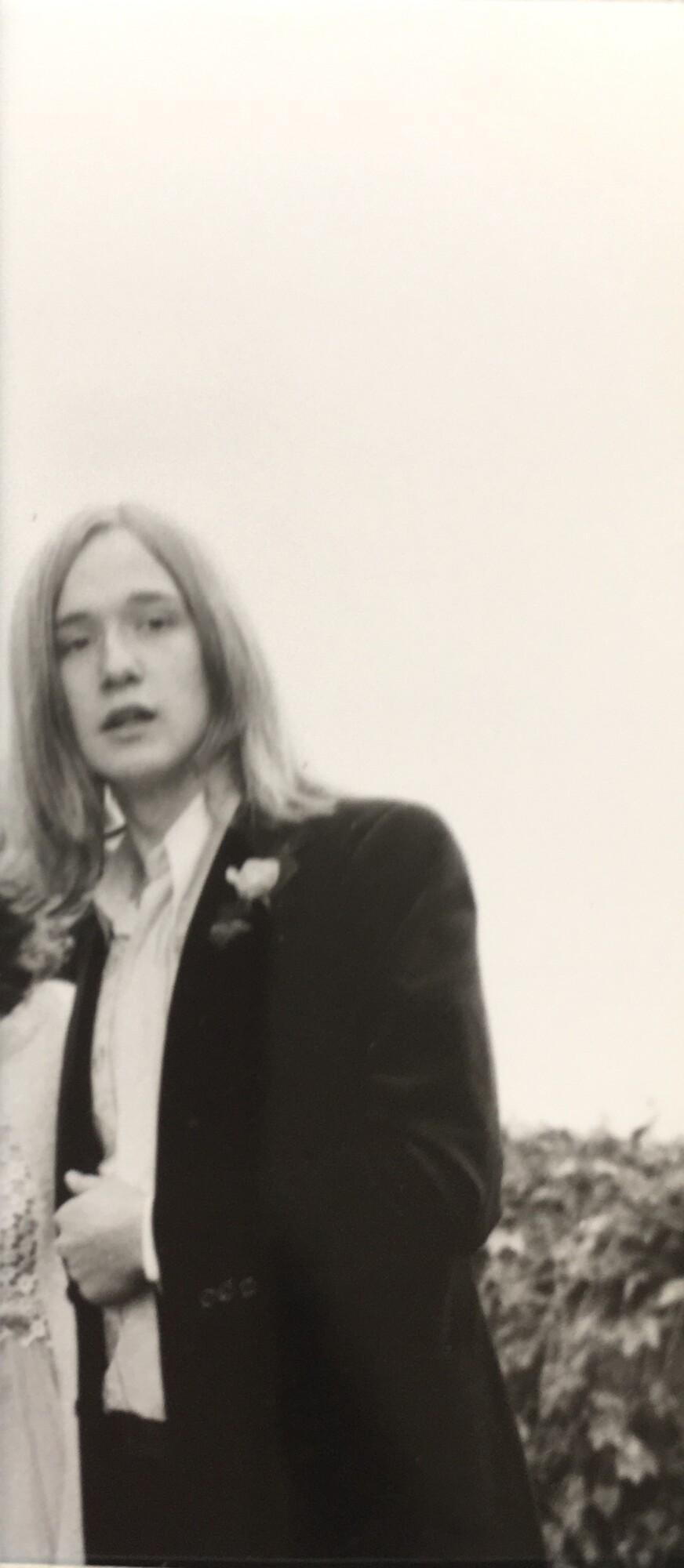
Was Omelet Surprise your first band? If so, what kind of music did you play and are there any recordings of it still available?
Walter Keller-Walter (Chil): Yes, for me it was. Before, I had written and played songs of my own, inspired by the Beatles, Bee Gees, Procol Harum, and others. First, we mainly played the blues, especially songs by John Mayall. Soon, we started writing and playing our own numbers. Influences came from bands like The Doors, Pink Floyd, Deep Purple, Jethro Tull, and all the really good stuff at that time. We recorded just one single – it was available privately from me. But somewhere there must be a copy of our one and only appearance on Swiss TV as part of an early pop show.
Heinrich Zwahlen: At age 11, I got my first electric guitar, and we started a band at the local school called the “Ketchups” haha. I listened to more white British Pop like the Beatles first and tried to copy some of the guitar parts.
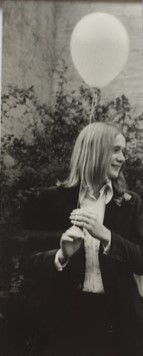
How did you meet Hans Peter Künzle and Max Schneider and what led to the founding of the band?
Walter Keller-Walter (Chil): The other three had already formed and named the band before Heinrich Zwahlen (who was at the same high school as me) asked me to join them. He knew I played the piano and had already written individual songs. Through them, I got to know, love, and play the blues as it came to Europe by John Mayall, Eric Clapton, Peter Green, and all those musicians.
Heinrich Zwahlen: At age 13, I started attending the Gymnasium (college preparatory grammar school) in Winterthur, where I met Walter. Max and Hans Peter I already knew from my neighborhood, where we played in a band together before.
What was the scene like at the end of the 60s in your town? Were there a lot of venues where you could see bands?
Heinrich Zwahlen: There was one place in Winterthur where we could hear live rock bands. There were also several spots in Zurich. I lived between the two cities, 15 train rides away.
What do you think was the band’s overall vision of Omelet Surprise?
Walter Keller-Walter (Chil): We wanted to change the world!
Heinrich Zwahlen: I think Walter and I complemented each other, whereas he was more interested in a poetic pop songwriting style. He liked the Beatles (John Lennon) or Traffic, while I was more just a guitar performer, influenced by blues rock. Initially, British bands like the Rolling Stones, Fleetwood Mac, Eric Burdon, and the Animals shaped my style, but later on, Jimi Hendrix really became my biggest inspiration. And then there were also bands like Canned Heat and John Mayall and the Bluesbreakers.
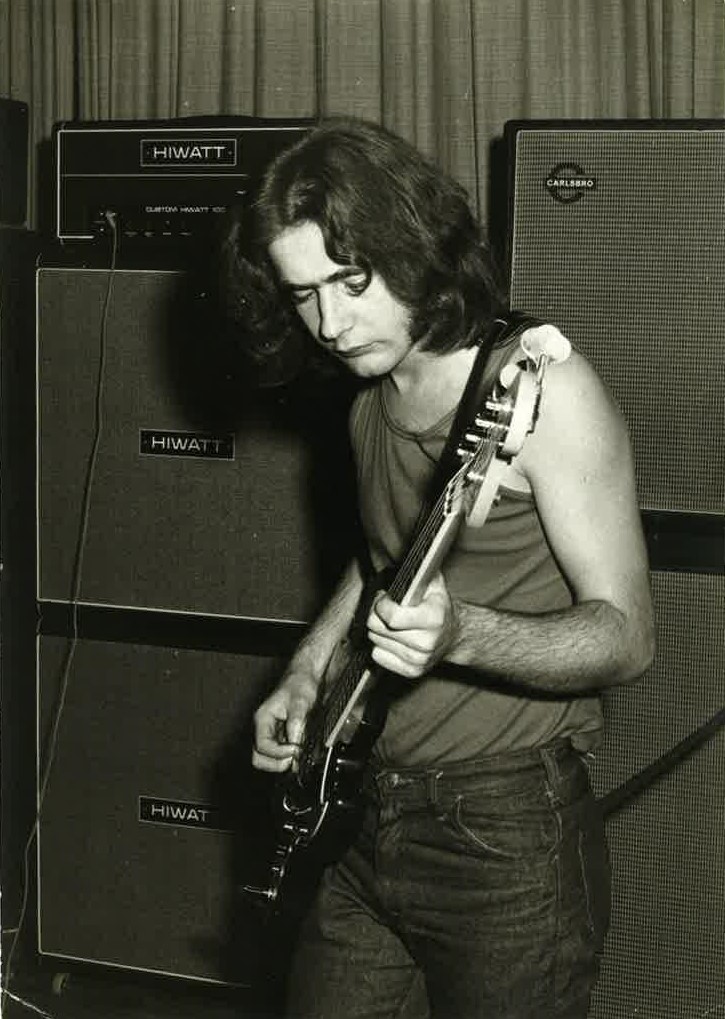
“We were already kind of quirky and psychedelic”
How did the name for the band come about?
Walter Keller-Walter (Chil): No idea.
Heinrich Zwahlen: It’s a recipe for an omelet. I guess that’s where we were already kind of quirky and psychedelic.
Tell us about your rehearsal location.
Walter Keller-Walter (Chil): That was the cellar used as an air raid shelter in the newly built church in my home village. My older sister was part of the church warden commission, so I owned a key to all the rooms there. I also could play the big pipe organ in the church. We used that room for rehearsals (and sometimes parties) until one evening we disturbed the ceremony upstairs by playing a little bit too loud…
Heinrich Zwahlen: We rehearsed in the basement of the local church in the town where Walter lived, which was fantastic.
What kind of amps, effects and pedals did you have in the band?
Walter Keller-Walter (Chil): As for me, I first played a real old heavy acoustic piano, which wasn’t loud enough among the drums and the amplified guitars. Soon, I could afford a brand new Hammond organ with a Leslie cabinet. At first, I was so excited that I always played too loud. In those days, there wasn’t yet a sound mixer with bands like ours. Heinrich played a Fender Telecaster; I can’t remember his effects or pedals (though he owned some things like that). He and our bass player Hans Peter used Marshall equipment. Max, the drummer, sat behind a George Hayman drum set.
Heinrich Zwahlen: Since we became popular rather quickly, doing many shows, we got sponsored by the local Swiss importer of Marshall amps, which was the gold standard back then. The Marshall tower!
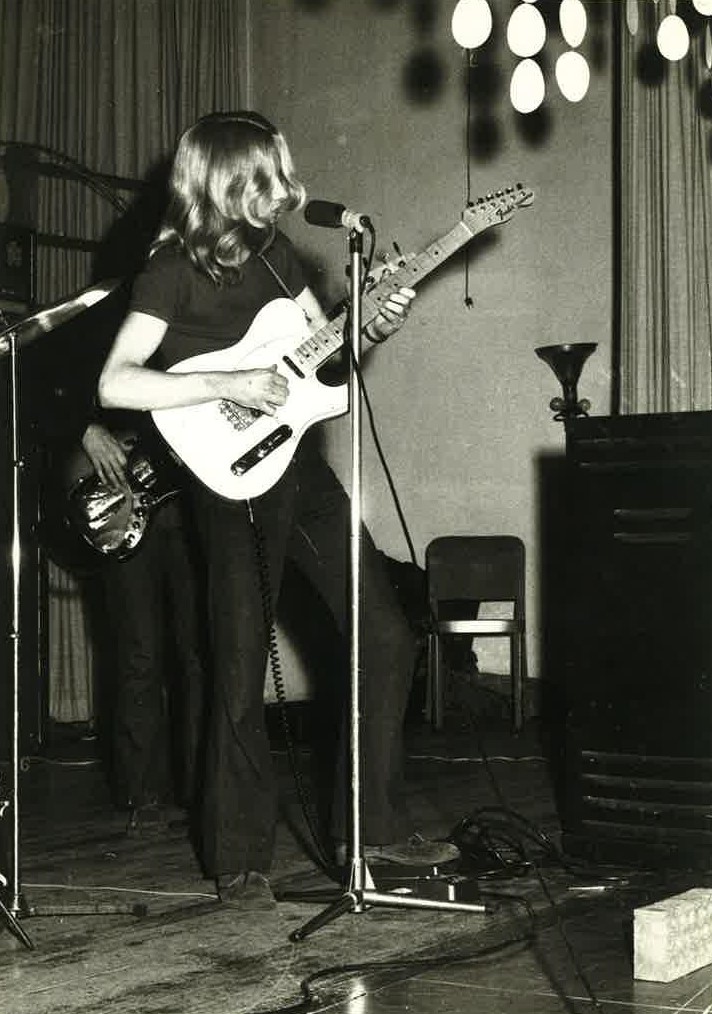
When was the band formed and how many years have you been actively playing?
Walter Keller-Walter (Chil): I’m not sure when the band was formed. My time with it lasted about three or four years.
Heinrich Zwahlen: Not sure of the date, probably between ’66 and ’68.
Which clubs did you play for early on? Which bands have you shared the stage with?
Walter Keller-Walter (Chil): There was a club in Zürich called “Blow up.” That was where we played several times. Then there were gigs at many different locations such as pubs, schools, town halls, and outdoor venues. The most famous band we shared the stage with was the newly formed “Faces” with Rod Stewart as the lead singer.
Heinrich Zwahlen: The best local Swiss bands, only a few existed. Krokodil, for instance, and Hardy Hepp.
What did your repertoire consist of? Did it change when you went into the studio to record a single?
Walter Keller-Walter (Chil): We mostly played songs of our own (of which we were very proud). Our single consisted of two numbers from our actual repertoire. The A-side was the first release of a pop rock song in Swiss dialect.
Heinrich Zwahlen: We mainly played rock-blues oriented tracks, 12-bar compositions, but also some more prog or psychedelic rock-inspired songs. Carrying around Chli’s Hammond and Leslies and sometimes even a piano!
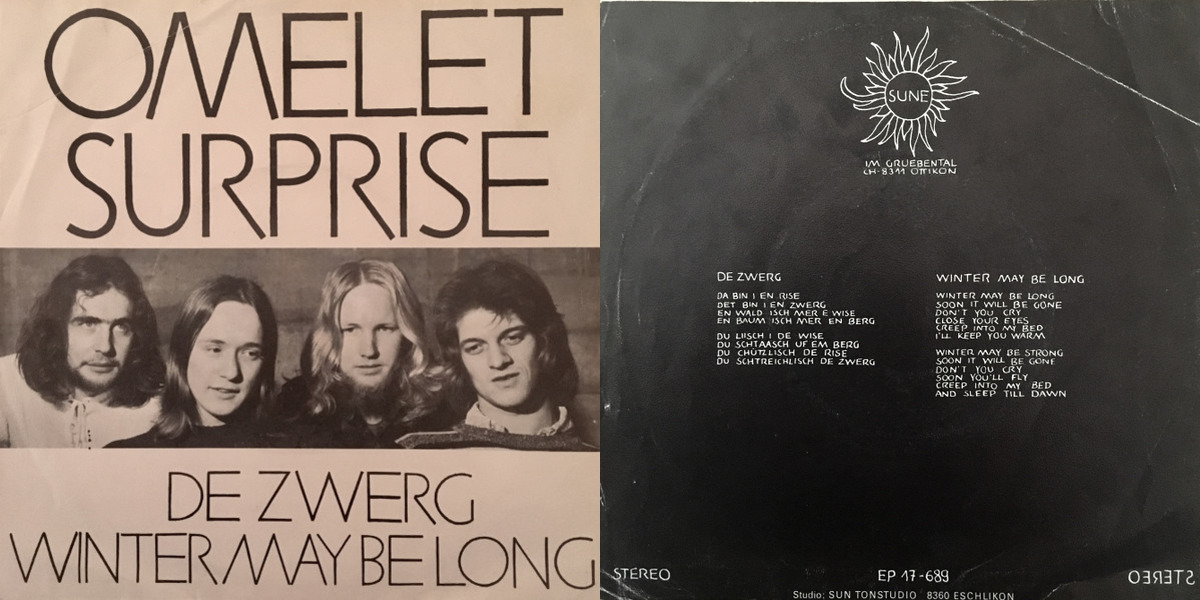
You released a single under the label name Sune, was it a self-release or what was the deal?
Walter Keller-Walter (Chil): Peter Felix Strässler, a friend of mine, had created that label name for the release of my LP ‘Rhubarby Feeling’ before, so we used the same name for our Omelet Surprise single. But in fact, it was a self-release (I paid for the entire production from my bank account).
Heinrich Zwahlen: Yes, it was self-released. It was one of the first releases of this kind in Switzerland, actually.
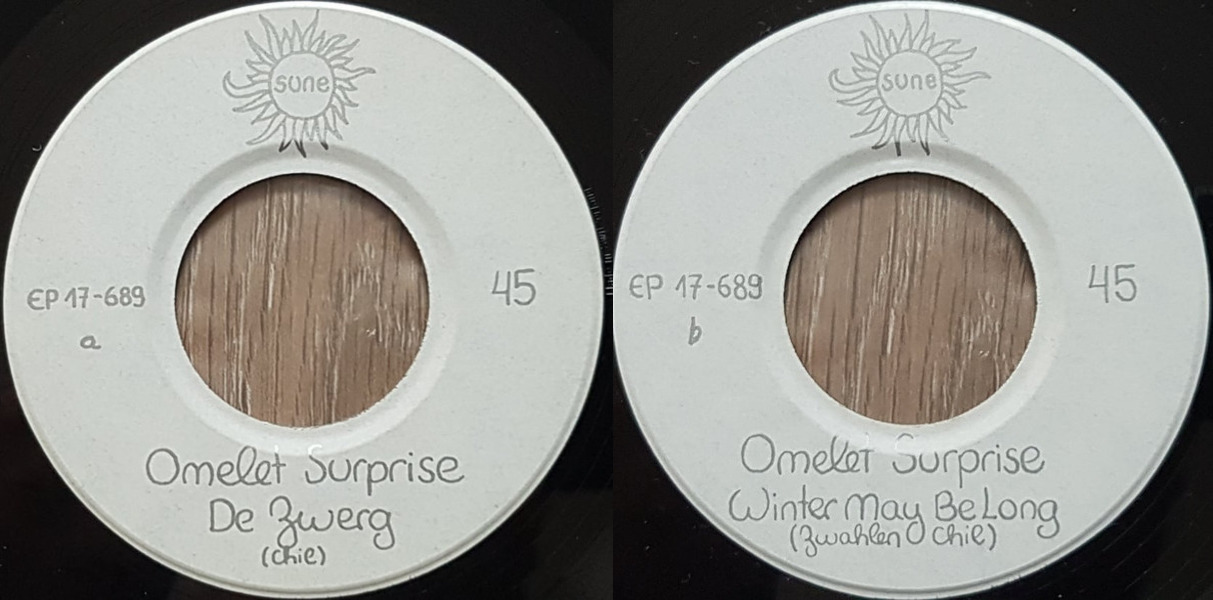
What date did you record it and when was it released?
Walter Keller-Walter (Chil): It must have been 1972.
How many copies of ‘De Zwerg’ / ‘Winter May Belong’ were originally pressed?
Walter Keller-Walter (Chil): I remember the number four thousand – but I’m not sure if that was the price it cost me or the number of copies. Anyway, it was far too much.
Heinrich Zwahlen: No idea, just a small limited edition
Did you get any airplay or press?
Walter Keller-Walter (Chil): As far as I know, hardly anything. We didn’t have a real manager and were too naive, conceited, and proud to sell ourselves.
Heinrich Zwahlen: Might have gotten some local Swiss coverage. We were playing out a lot!
Where was the single recorded and who was the producer?
Walter Keller-Walter (Chil): It was recorded at the studio of Peter MacTaggart, a very nervous sound engineer who later produced some successful albums with Swiss pop and folk musicians like Peter Reber and others.
Heinrich Zwahlen: Small countryside 8-track studio. Peter McTaggart was the producer, I think.
Did all members of the band participate in writing the songs?
Walter Keller-Walter (Chil): Heinrich and I wrote the songs, but the arrangements were created jointly by the four of us – that’s what makes a real band.
Heinrich Zwahlen: It was mainly between Walter and myself, but of course, everybody played their own parts.
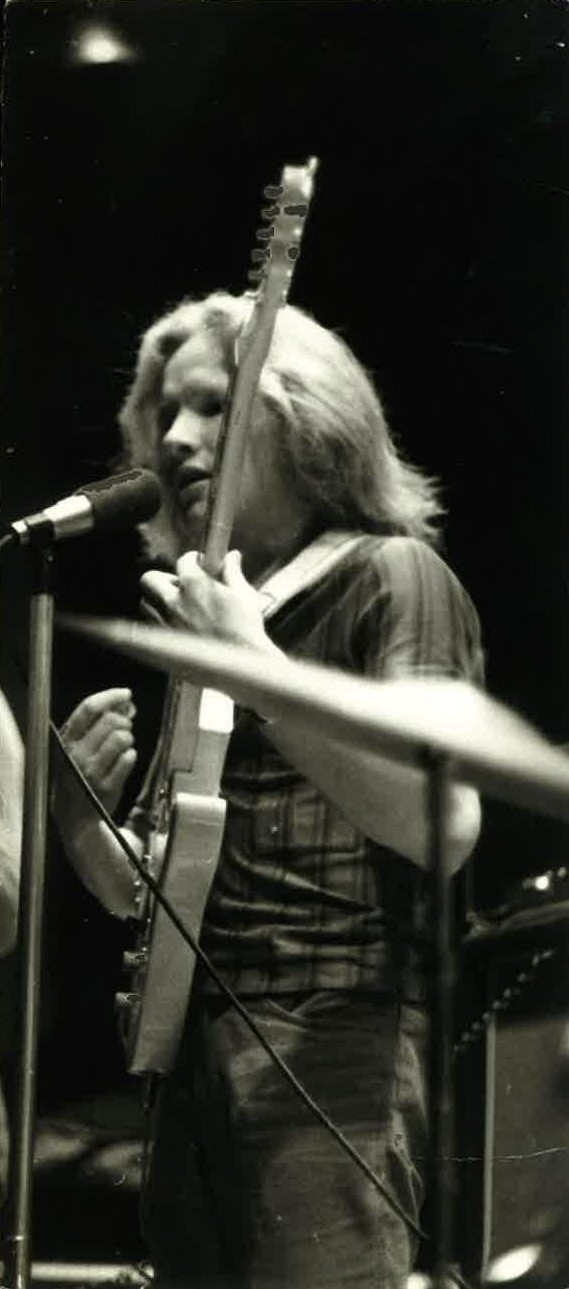
What can you tell us about the writing and recording process of ‘De Zwerg’ b/w ‘Winter May Belong’?
Walter Keller-Walter (Chil): ‘De Zwerg’ was inspired by the relationship between my girlfriend (and today’s wife) and me. She teased and comforted me at the same time. As for the music – well, you start playing something, and suddenly there it is, and you know it is what you need.
‘Winter May Be Long’ was initially a quite sentimental song by me. Then one day, Heinrich came up with totally different, rocking music to the same words, and we all knew: that’s it! On the recording day, we were all very tense and had to play the tracks again and again. I had a cold then and had to re-record the singing of ‘De Zwerg’ two weeks later. Heinrich, who is the singer in ‘Winter May Be Long,’ had to fight with cold fingers, but finally, he also managed the guitar solo.
Heinrich Zwahlen: I can only say that ‘De Zwerg’ was kind of revolutionary insofar as it was in Swiss German.
Who did the cover artwork?
Walter Keller-Walter (Chil): It was me, using a photograph of the band shot by Peter Felix Strässler.
Was there another original track that you played live but didn’t record?
Walter Keller-Walter (Chil): As I mentioned before, we hardly played any cover versions. So most of our repertoire was original and remained unrecorded.
Heinrich Zwahlen: Many, I think, we did not cover anybody else’s material.
Is there any unreleased material?
Walter Keller-Walter (Chil): I still own a very badly recorded music cassette with some fragmentary live recordings.
Heinrich Zwahlen: Not that I know of.
What would be the craziest gig you’ve ever done?
Walter Keller-Walter (Chil): It was April 1st in Basel. We were the openers for an English band whose name I have forgotten (was it Duffy?). There was not a single listener in that quite big hall – people must have thought the announcement was a joke because of the date. So first, we played for the headliners, then they played for us.
Heinrich Zwahlen: I think it must have been the gig where we had to carry Walter’s amp up two flights, haha.
What happened next to members of the band?
Walter Keller-Walter (Chil): Hans Peter Künzle went to the Jazzschool of Bern and became a bass player in various salsa groups. The drummer, Max Schneider, stopped playing music as far as I know. I lost contact with them decades ago.
Heinrich Zwahlen: I stayed in touch later in the mid-70s with Hans Peter, the bass player, as we both attended the same jazz school in Bern for a while.
Heinrich, you were part of projects like Aboriginal Voices, Putsch, Verdorbene Jugend, Expo…. please tell us more about that.
Heinrich Zwahlen: Yeah, I’ve always been interested in musical innovation, which made me a bit of a musical chameleon. Different times demand different forms of expression; i.e., the more you change, the more you stay the same.
I played in the first major label Swiss Punk/New Wave bands (Nasal Boys/EXPO) from ’77 to ’79. It was really a total rejection of Hippie music and the overindulging guitar solos of that era. We were interested in speed and minimalism and also full of irony and humor. This felt more authentic to me at that time.
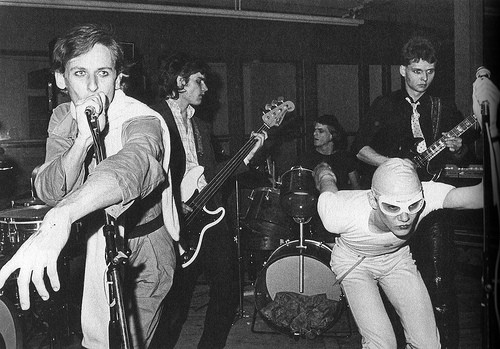
In 1980, I started an electronic duo called Aboriginal Voices with Micheline Pfister. Before, I had always been trying to expand the sound of my guitar with combinations of pedals and effects. I embraced synthesizers because they gave me new sound possibilities. I feel Jimi Hendrix was already an electronic musician in that sense. Aboriginal Voices were pioneering electronic live music performances and did many live shows. We got a lot of local coverage. Our cassette releases with RecRec/Crammed Disc were just re-released on vinyl last year on a German label.
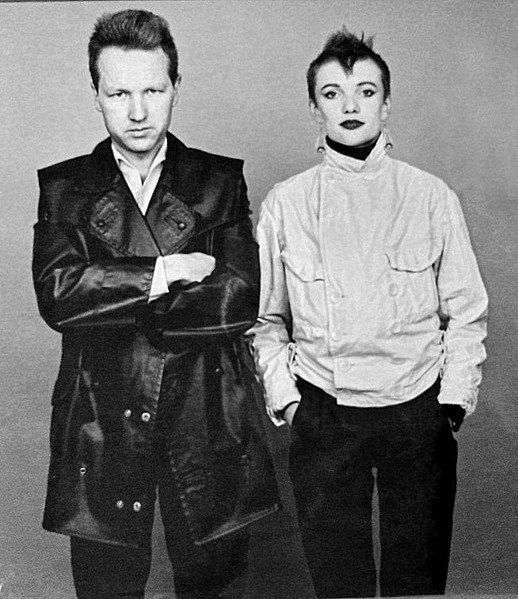
After I moved to NYC in ’85, I started another two-piece project called Basscut with a very talented vocalist named Elisa Burchett. With her gospel background, she combines blues sensibility with electronic music and sounds. We were signed to a British label (Ten/Virgin) from ’89 to ’91. We continued to release music on labels and independently until recently…
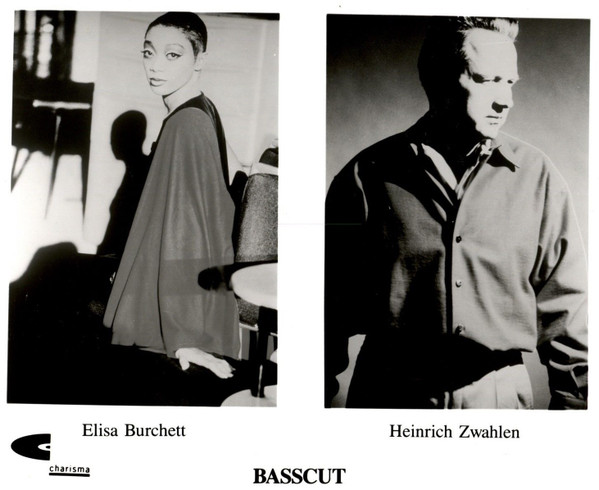
Walter Keller-Walter (Chil):, you released ‘Rhubarby Feeling’, do you know anything about it? Any information about it would be great. I guess it was a private release?
Heinrich Zwahlen: I think it’s a brilliant record, and it sounds amazing considering it was just done in a church’s basement on a Revox! Walter did a great job with his lyrics and songs; I still remember some of them.
Walter Keller-Walter (Chil): Inspired by some of my songs, my friend Peter Felix Strässler made a movie, the continuing soundtrack of which consists exclusively of the songs finally recorded on this album. Not a spoken word by the actors. I made the recordings all alone in our rehearsal location, using a two-track Revox machine and playing all the instruments myself by repeated playback – with some exceptions such as the beautiful guitar riffs and solos by my friend Heinrich. Then Peter Felix created the label name “Sun,” because we thought there had to be something looking professional written on the LP. But in fact, it was a private release, sponsored by a local employer. Meanwhile, this record has been digitally mastered in the USA and re-released as a CD by Black Rills Records of Switzerland. A year ago, I realized that there are copies of the original LP bought and sold on the internet for about 700 Euro – so over the years, it must have become quite a myth!
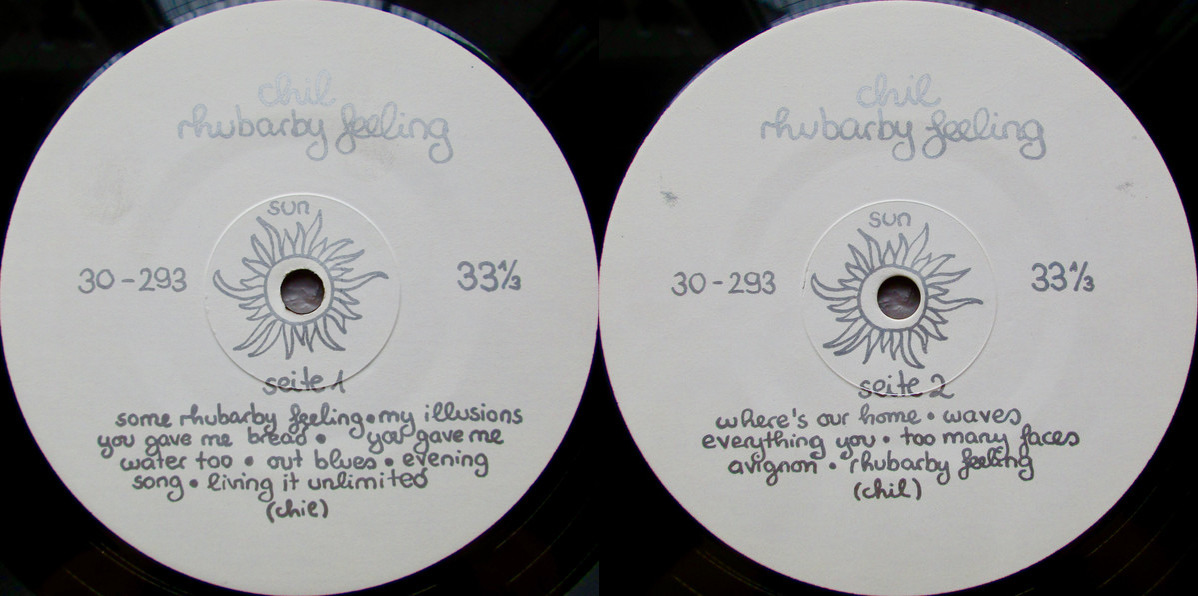
Now, forgive me for my presumptuousness: Recording ‘Rhubarby Feeling,’ I was nineteen years old. Over the following twenty years, I produced five more albums as a singer-songwriter using my legal name Walter Keller-Walter and recording my own songs together with various fine musicians. Three of these LPs/CDs are in English language (one in German, one in Swiss dialect), and I still hope that one day they will attract the attention they deserve. (‘Englische Lieder für irdische Ohren’ (1979) / ‘Love Is A Hard Work’ (1983) / ‘Belladonna’ (1986) / ‘Schnee uf de Blüete’ (1989) / ‘Individuality’ (1991)).
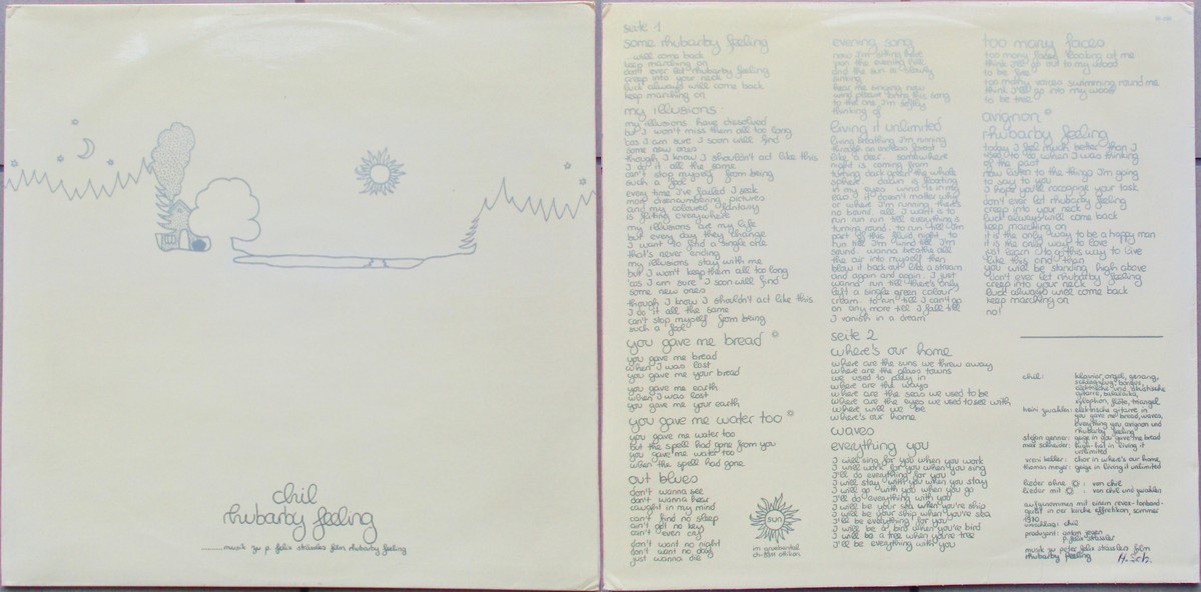
Looking back, what was the highlight of your time in the band? Which songs are you most proud of ? Where and when was your most memorable performance?
Walter Keller-Walter (Chil): The entire time with the band was a highlight in itself: the rehearsals, the adventurous gigs, the walks, joints, and debates with Heinrich about God, music, Hesse’s Siddhartha, Karl Marx, and the rest of the world; feeling the vibration of something new and exciting coming up. I’m not proud of one special song; I like the fact that we wrote and arranged most of the songs ourselves. And every performance was memorable – some for the better, some for the worse.
Heinrich Zwahlen: We really liked to jam and improvise with long free-form solos, which was kind of in the style of the Anglo/American psychedelic and blues rock scene. To me, it was more about improvisation and feeling than about song form.
What currently occupies your life?
Walter Keller-Walter (Chil): I am a husband, father, and grandfather. Seven years ago, I returned to painting, which was my initial training as an art teacher, after having been a piano teacher for thirty years. Additionally, I am studying Rudolf Steiner’s anthroposophy and involved in several anthroposophical connections. Here, I find what I’ve been looking for since my days with the band.
Heinrich Zwahlen: Besides making music with Elisa Burchett as Basscut, I’ve been teaching electronic music production at NYC music schools since 2008, and also creating courses and curricula, mostly for Ableton and Sound Design.

Thank you for taking the time. The last word is yours.
Walter Keller-Walter (Chil): Thank you too! Don’t ever let “rhubarby feeling” creep into your neck.
Klemen Breznikar
Headline photo: Omelet Surprise

